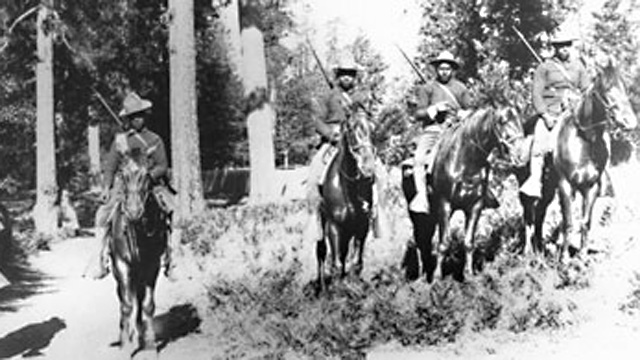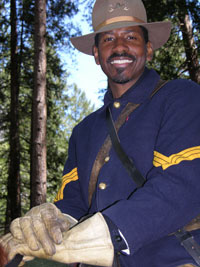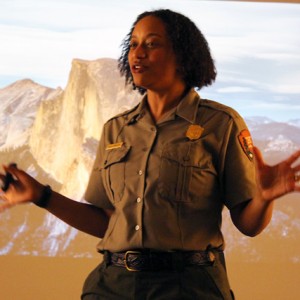
By Sara Bernard
Yosemite National Park ranger Shelton Johnson has spent a lot of time thinking about the Buffalo Soldiers — African-American Army troops who were stationed in the Sierras in the first years of the 20th century. In fact, it's been 18 years since he graduated from Yosemite's Mounted Horse Patrol School for the express purpose of portraying them in films, podcasts and live performances. Mostly, he plays Sgt. Elizy Bowman — Troop “K,” 9th U.S. Cavalry — who was one of the real-life Buffalo Soldiers who found duty in the high country.
"What that job meant was patrolling Yosemite," Shelton's character croons, on one of the episodes of the podcast. "And the way of Yosemite is that there are colored soldiers here and we are the ones enforcing the rules."
That's because the Buffalo Soldiers were some of the country’s first national park rangers —before the National Park Service was created in 1916. The second African-American National Parks Event will honor their legacy with speeches, re-enactments and a performance by Shelton Johnson in Yosemite Valley.
Participants will first gather at San Francisco's old Army base, the Presidio, where the Buffalo Soldiers were once stationed, and then travel by bus along the route that some took into the Sierra Nevada in 1903. They'll stop in Los Banos, where one prominent Buffalo Soldier is buried, and then spend the night camping in Yosemite, trailed by the Buffalo Soldiers Motorcycle Club.

The event focuses on African-American history in the national parks to spotlight today's reality: few African-Americans visit them. A study several years ago found that at Yosemite, the proportion of black visitors is less than 1 percent.
